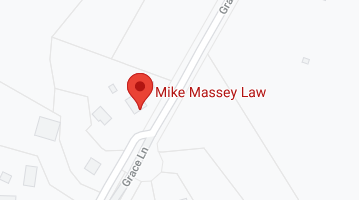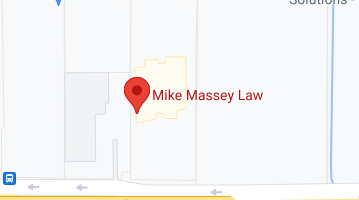Frequently Asked Questions
Texas probate has a reputation for being reasonably lower in cost and time relative to most states. However, there are many items to consider. One, would you rather go to court or bypass court. Most prefer the latter. Two, would you rather pay attorneys or not pay attorneys for the probate process. Most prefer the latter. Three, just because the probate system may seem "relatively" minor relative to other states, there's no promise that cannot change. As a result, I say, if we can beat the courts and avoid paying more attorney's fees, then let's try to bypass probate. It's basically a matter of paying a little money now and spending a little time with the goal of avoiding paying more money later and having your heirs get too stressed with the process.
No problem. If you die without a will (intestate) in Texas, then your assets will go to your closest relatives under state “intestate succession” laws. I won't go into those in detail because if you are inheriting under intestacy, then you can ask your attorney and they will explain it to you. Needless to say, it's far better for you to decide who inherits your assets rather than have state law decide it for you.
I would describe it as a document of your wishes for leaving your assets at your death. Wills in Texas must be probated through the court system. A will can cover many of your assets, but probably not all of your assets, such as non-probate assets. For example, joint bank accounts and/or joint investment accounts, and accounts with properly established beneficiary designations (investment accounts, life insurance, & retirement accounts) will likely pass outside of your will and outside of probate. So it's crucial that you have your titling and beneficiary designations on ALL of your accounts set up so that they are part of your total estate plan. Often times people have their wills set up with certain intentions in mind, but some of those intentions become wasted effort as certain other accounts bypass that will and probate. These mistakes are easy to make and are very common.
It's basically a legal arrangement made during your lifetime, that you (or your spouse) can revoke), that gives the trustees control of the assets in the trust, subject of course to the terms of the trust, for the benefit of the beneficiaries. Likely you are the beneficiaries of your own trust during your lifetime, and then your kids (for example) will become the beneficiaries once you have passed away. Properly done, this is an excellent way to avoid probate because it's avoids the court system and probate process, thereby likely saving your estate money and saving your heirs from unnecessary stress and headaches.
Maybe. Let's assume you have 2 kids, but only 1 of the kids on the bank account with you. Now let's assume that the bulk of your net worth is in that bank account. When you die, your 1 child is the 100% owner of that account, there is no probate, and the other child has no share in that account. Whoops, you just cut your child out of your inheritance. Do you think that disinherited child will be mad at you? Mad at their sibling also? You bet.
One of the biggest problems with DIY (Do-it-yourself) estate planning software is that you have to get it notarized, but most banks and real estate offices refuse to notarize estate planning documents, even if you're a loyal customer of such bank. Sorry, can't help you here.
One of the great problems with DIY software is that the client (you) becomes insecure and scared that they're not doing it right. They have no unbiased 3rd party to ask the tough questions. They're spending hours upon hours trying to get it right, but they never get the confidence they so desperately need. While a DIY system may be o.k. for a tiny and simple estate, most people who can afford estate planning should definitely consult a professional.
Nope. Probably not. You'll probably have to go through probate in both TX and CA. Talk about headaches. I have clients with rental properties or vacation homes in 3 or 4 states. If they don't get everything set up properly, then they could be looking at 3-4 different probate processes in 3-4 different states, all simultaneously. While their kids will be happy to inherit those properties, it will likely create undue stress that could have easily been avoided.
Your brother may be excellent at estate planning, but the opposite case may well be true. There's a decent chance that you may not get all the advice and coaching that you deserve. There are many questions which should be asked of the client, and many instructions which will aid in the funding of your living trust. There are suggestions like how to store the documents, whom to tell about the documents, immediate access points like DocuBank, etc. that even an attorney may miss (not because they're not brilliant, but because they may not draft estate planning documents but once in a blue moon). So just be careful if you're getting free estate planning documents from someone who doesn't draft them as a regular part of their business.
It depends on the state. In Texas, it appears that a car does need to be probated, but there may be exceptions such as the Affidavit of Heirship and also for cars that are owned by a Living Trust. Speak to your lawyer for further information.
In many cases, the answer is yes. Why? Because you probably don't have a beneficiary designation established on the deed to your house. So that has to be probated in that case. You probably have jewelry and furniture, and that needs to be probated because it's valuable to someone most likely. Further, beneficiary designations don't come into play until your dead, but someone (your trustee) may need access to your assets BEFORE you're dead, i.e., in the case of incapacity due to a stroke, coma, or Alzheimer's. So absent a trust, you've got problems without solutions. Why risk it? When you can get a living trust set up for just an extra $200 with Attorney Mike Massey in Austin, TX who drafts affordable wills and living trusts for your estate planning needs.
Yes, you can achieve this through an Advance Directive, also known as a Living Will. It basically states that if you're in either a terminal condition or an irreversible condition, both of which will result in death, then you've chosen to either (1) be kept comfortable or to (2) instead utilize all available life-sustaining treatment. Here is some of the partial verbiage. (1) I request that all treatments other than those needed to keep me comfortable be discontinued or withheld and my physician allow me to die as gently as possible; OR (2) I request that I be kept alive in this terminal condition using available life-sustaining treatment. (THIS SELECTION DOES NOT APPLY TO HOSPICE CARE).
"Most college students want their parents help in a medical emergency. This is why parents' names and phone numbers appear right on the I.C.E. card. So that family can be contacted right away. Also, whenever a hospital uses the student's I.C.E. card to obtain the student's HIPAA release, the parent receives an immediate alert from DocuBank. This alert gives the parent the hospital's phone number so they can call directly and find out what's happening with their child, getting answers, rather than the Silent Treatment. The I.C.E. card tells medical personnel how to obtain the student's HIPAA release (or other healthcare directives) on file with DocuBank. With this release, the hospital is free to share information about the student's condition when parents call - without fear of violating the federal healthcare privacy law (HIPAA).In addition, with the I.C.E. card, the hospital sees a student's allergies and important medical conditions right on the card - so that medical professionals can provide the most appropriate treatment immediately." Source: Docubank. http://www.docubank.com/index.cfm?event=collegecard


 512-400-4430
512-400-4430 mike@mytxwills.com
mike@mytxwills.com




